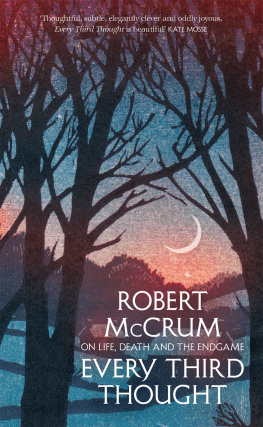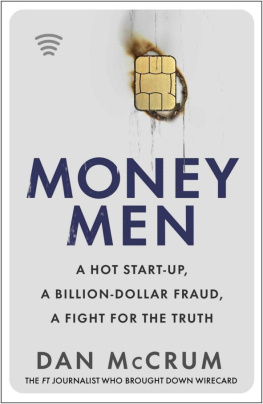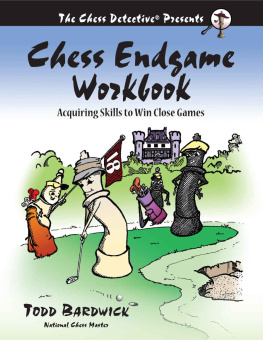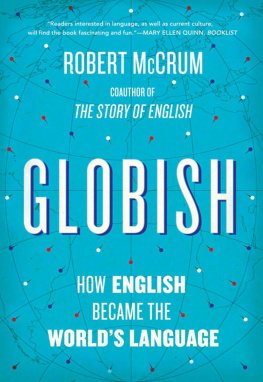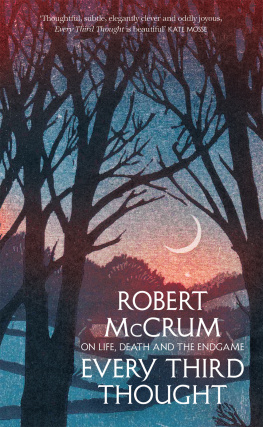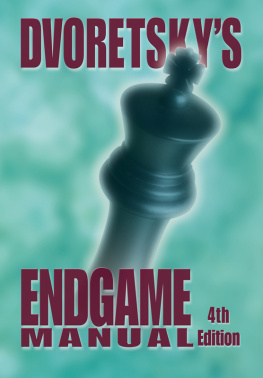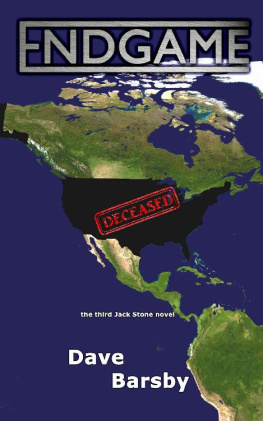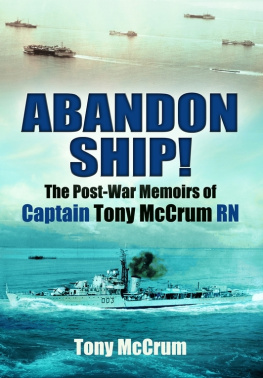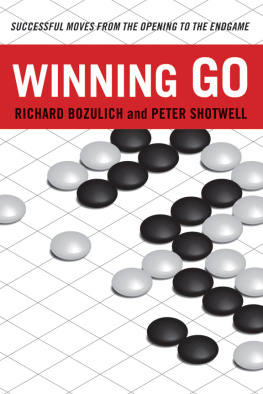Robert McCrum - Every Third Thought: On Life, Death and the Endgame
Here you can read online Robert McCrum - Every Third Thought: On Life, Death and the Endgame full text of the book (entire story) in english for free. Download pdf and epub, get meaning, cover and reviews about this ebook. year: 2017, publisher: Pan Macmillan, genre: Religion. Description of the work, (preface) as well as reviews are available. Best literature library LitArk.com created for fans of good reading and offers a wide selection of genres:
Romance novel
Science fiction
Adventure
Detective
Science
History
Home and family
Prose
Art
Politics
Computer
Non-fiction
Religion
Business
Children
Humor
Choose a favorite category and find really read worthwhile books. Enjoy immersion in the world of imagination, feel the emotions of the characters or learn something new for yourself, make an fascinating discovery.
- Book:Every Third Thought: On Life, Death and the Endgame
- Author:
- Publisher:Pan Macmillan
- Genre:
- Year:2017
- Rating:4 / 5
- Favourites:Add to favourites
- Your mark:
- 80
- 1
- 2
- 3
- 4
- 5
Every Third Thought: On Life, Death and the Endgame: summary, description and annotation
We offer to read an annotation, description, summary or preface (depends on what the author of the book "Every Third Thought: On Life, Death and the Endgame" wrote himself). If you haven't found the necessary information about the book — write in the comments, we will try to find it.
Every Third Thought: On Life, Death and the Endgame — read online for free the complete book (whole text) full work
Below is the text of the book, divided by pages. System saving the place of the last page read, allows you to conveniently read the book "Every Third Thought: On Life, Death and the Endgame" online for free, without having to search again every time where you left off. Put a bookmark, and you can go to the page where you finished reading at any time.
Font size:
Interval:
Bookmark:


For my daughters
Alice and Isobel
Every third thought shall be my grave.
William Shakespeare, The Tempest
Contents
Introduction
Every day, you get older. Now thats a law.
William Goldman,
Butch Cassidy & the Sundance Kid
No one will ever know exactly what happened inside my head on the night of 28 July 1995, but probably it went something like this. First, for reasons that remain mysterious, a surreptitious clot began to form in one of my cerebral arteries, cutting off the blood supply to part of the one organ in the body that, after the heart, is most greedy for blood. Eventually, perhaps some hours later, like a breaking dam, the clot burst into the right side of my brain, causing an uncontrolled bleed that would achieve irreversible destruction of cerebral tissue deep inside my head, in the part of the cortex known as the basal ganglia.
My first reaction, when I came round in University College Hospital, drifting in and out of consciousness, was a kind of weird exhilaration. I had no idea about what had happened to me, but whatever it was, I seemed to have survived. Lying naked under a pink blanket in the intensive-care unit, wired up to the monitors, I was aware of being in the antechamber to the grave. Even now, years later, I can still recall the eerie fascination of this experience and of having, by great good fortune, returned to tell the tale.
Physically speaking, Id been poleaxed. My left leg was paralysed, and my left arm hung from its socket like a dead rabbit; the left side of my face, which drooped badly for about ten days, felt frozen, as if my dentist had just given it a massive novocaine injection. I could not stand upright, or even think of getting out of bed; besides, my penis was attached to a Convene, a condom-like device that drained my urine into a plastic bag. My speech was slurred; every few hours, a team of three nurses would turn me over in bed, as if I was a slow-cooking roast. In place of pain I was never in any pain there was a hallucinatory sense of detachment, as if I was outside myself, looking in.
I felt then, and still feel some twenty-one years later, a powerful need to explore the consequences, and perhaps the meaning, of this very close call. In the words of the philosopher Wittgenstein, How small a thought it takes to make a life. The event that I was learning to call my stroke was an emergency that would not only transform my life, but also change my thoughts about death and dying for ever.
As the great American transcendentalist Henry Thoreau puts it: Things do not change. We change.
A MATTER OF LIFE AND DEATH
No man is an island, entire of itself; every man is a piece of the Continent, a part of the main; if a clod be washed away by the Sea, Europe is the less, as well as if a Promontory were, as well as if a Manor of thy friends, or of thine own were; any mans death diminishes me, because I am involved in Mankind.
John Donne, Meditation 17, Devotions Upon Emergent Occasions
Ever since I fell dramatically ill one night in July 1995, I have found myself in the shadow of death. From the moment I woke on that distant summer morning, I have been an involuntary citizen of a world I have had to learn to live in, and be at peace with.
I was on the road to some kind of physical recovery. In my head I could never go back to my old self. In darker moments, I would mourn a former life. Now, each day is a reminder of human frailty. Getting out of bed each morning will always seem like an in-house memo about my fate. How and when will it happen again? Thats another mystery for which no one has a satisfactory answer.
As a lucky survivor, for more than twenty years, Ive been living with the apprehension of mortality. To put this another way, at least half my adult life has been spent in the psychological equivalent of A&E. What follows is a book I dont have much choice about: it comes from the heart.
Matters of life and death are my special subject. As you will discover in the pages that follow, I have developed an affinity for conversations with brain specialists and their patients. My survival after 1995 has had this profound and long-lasting consequence with which Ive had to come to terms: for better or worse, I am a lightning rod for the unwell. Strangers tell me about their sufferings and demons. But few things are ever quite as bad as we fear. This experience has introduced me to many sad cohorts of distress. It has also come with some rare blessings too.
On the dark side, however, you would have to be made of stone not to be moved by many stories from the front line of ill-health. Here is an extract from a letter I received soon after I came out of hospital in 1996: We, too, have become inhabitants of the world of pain. Our lovely daughter was diagnosed with leukemia. A year ago, she suffered a stroke, contracted a serious infection and died of pneumonia. The letter goes on, Now we are living in hell... I feel that Ill never be happy again. There is nothing to look forward to.
As a long-term convalescent, I habitually encounter people talking about their illnesses, their breakdowns, crises, and bereavements. Sometimes, a hurt shared becomes a wound soothed. Perhaps this runs in the family. My mother, Christine, a resilient eighty-something, is a seasoned Cambridge grief-counsellor. She specializes in collecting poetry and prose suitable for funerals.
Recently, I went to two burial services on successive mornings, and was reminded that, in my early sixties, I am no longer a spring chicken. Where strangers used to share their experiences of death and dying, now its friends who confide their anxieties about the ageing process. Suddenly, everyone is having that third thought. As one of my fellow mourners said, as she turned in greeting from the pew in front, Its funerals now, not weddings.
To some baby-boomers, this is unwelcome news. Since the Second World War, biochemical research has excelled in defying the odds against us with discoveries like the structure of the double helix, DNA the molecule of life. In so doing, medical science has sometimes seemed to persuade itself, and many of its patients, that our traditional encounter with decrepitude, infirmity and death can be almost indefinitely postponed.
At the same time, those post-war generations, in quest of self-fulfilment, have become complicit with a fantasy of immortality whose cruel outcome can sometimes be a yet more terrible endgame. The novelist Martin Amis once observed that, after the age of about sixty, whenever we think about the lives we have always taken for granted, we are obliged to concede that, in his words, This is not going to end well.
Every Third Thought takes inspiration from my particular experience, but its also a response to an immutable predicament. A self-assured generation, which has lived so well for so long, is having to come to terms with a complex but universal truth: make peace with death and dying, or find the inhibitions of everyday life in your final years becoming a special kind of torment.
The baby-boomers response to this predicament (as one of them, I can recognize this) has been to put our heads on one side, look puzzled, drag on a cigarette, and say something like, We seem to have a bit of a problem.
To which any rational person might respond: What sort of a problem?
Baby-boomer: Thats what were working on.
Rational Person: What, precisely, are you working on?
Font size:
Interval:
Bookmark:
Similar books «Every Third Thought: On Life, Death and the Endgame»
Look at similar books to Every Third Thought: On Life, Death and the Endgame. We have selected literature similar in name and meaning in the hope of providing readers with more options to find new, interesting, not yet read works.
Discussion, reviews of the book Every Third Thought: On Life, Death and the Endgame and just readers' own opinions. Leave your comments, write what you think about the work, its meaning or the main characters. Specify what exactly you liked and what you didn't like, and why you think so.

